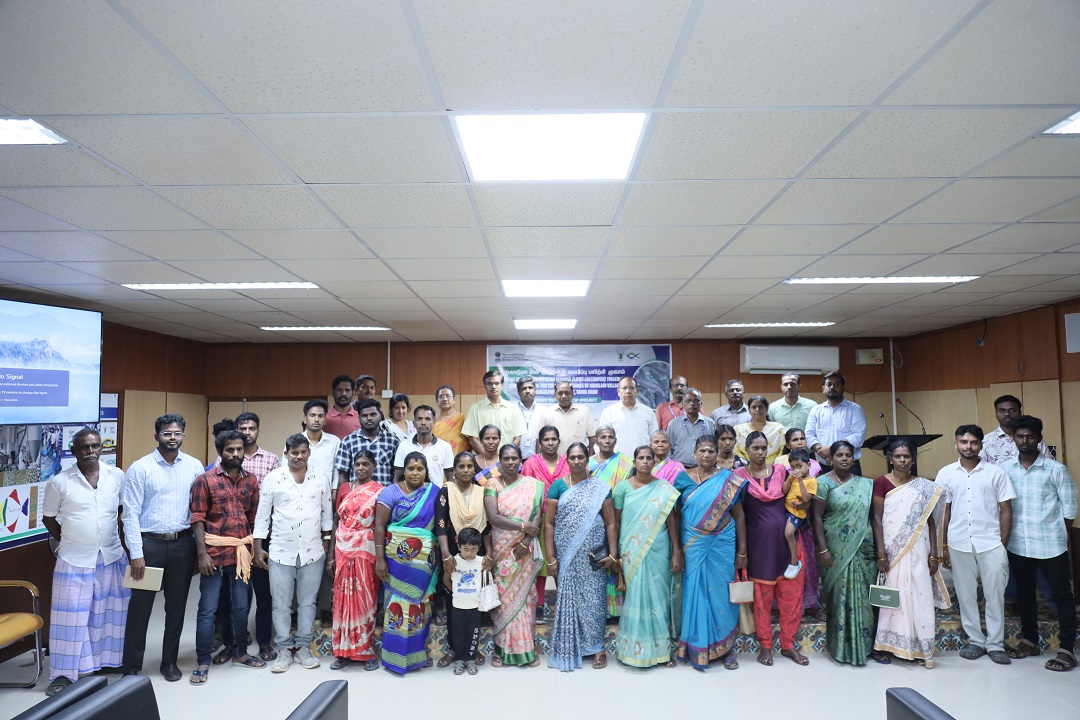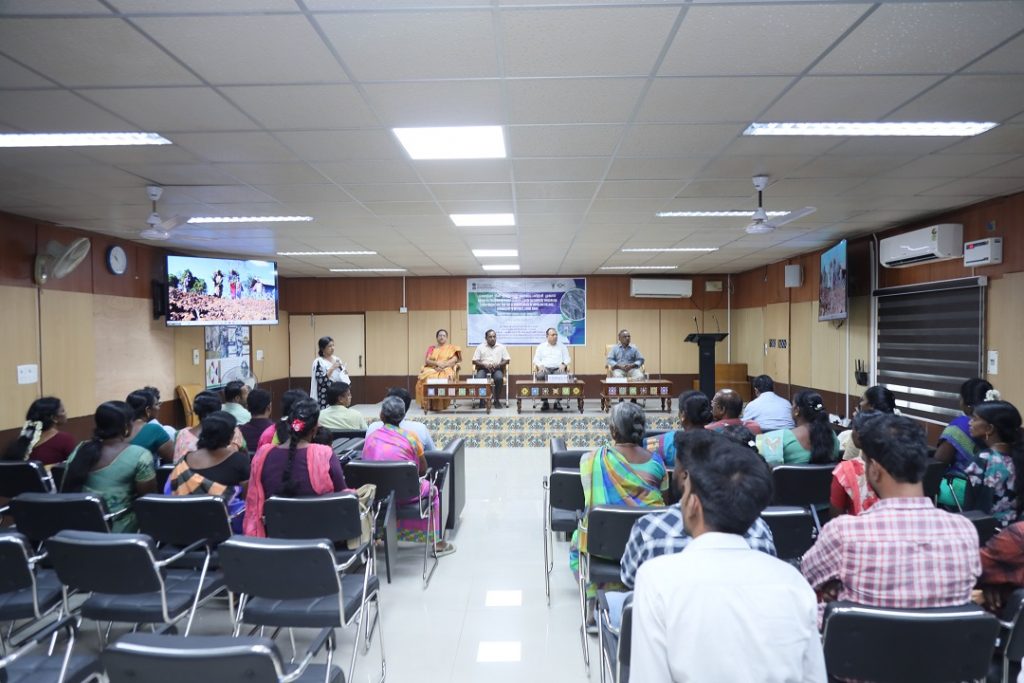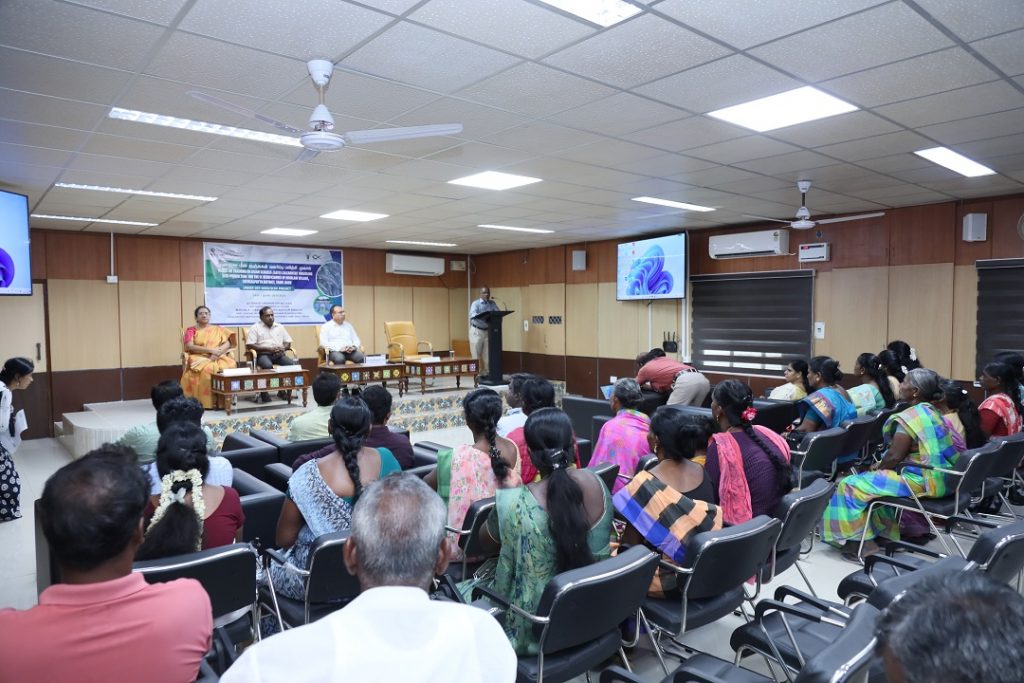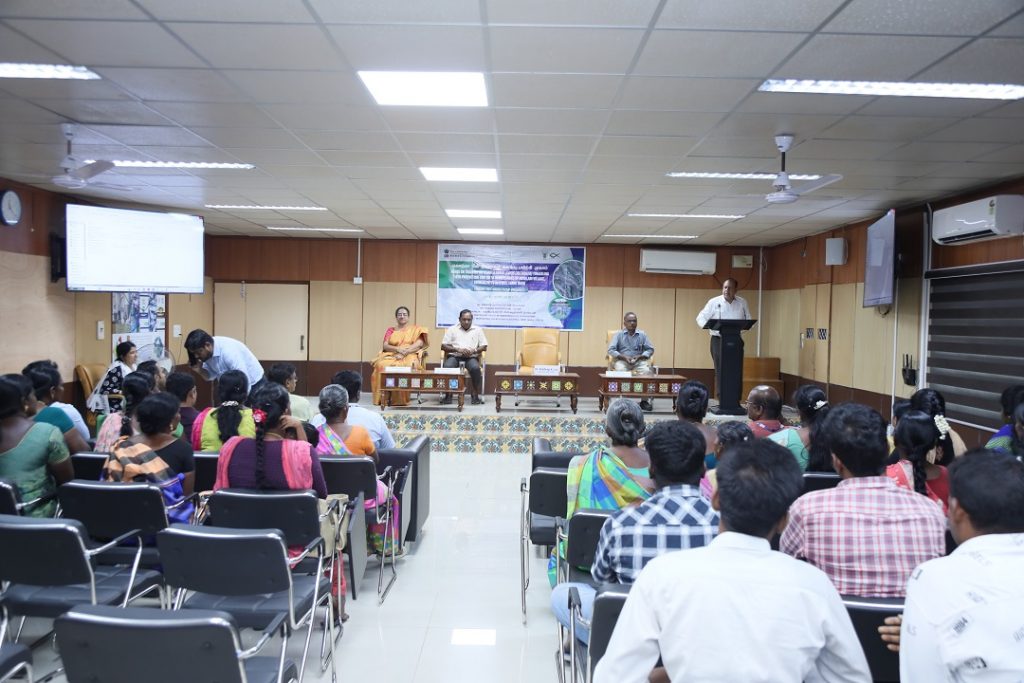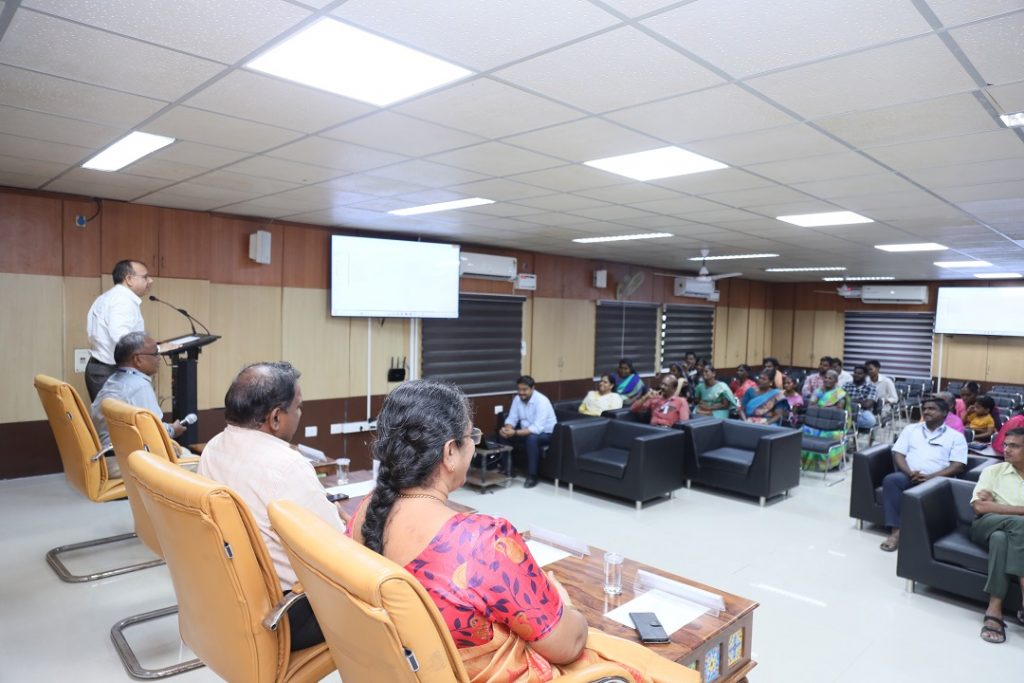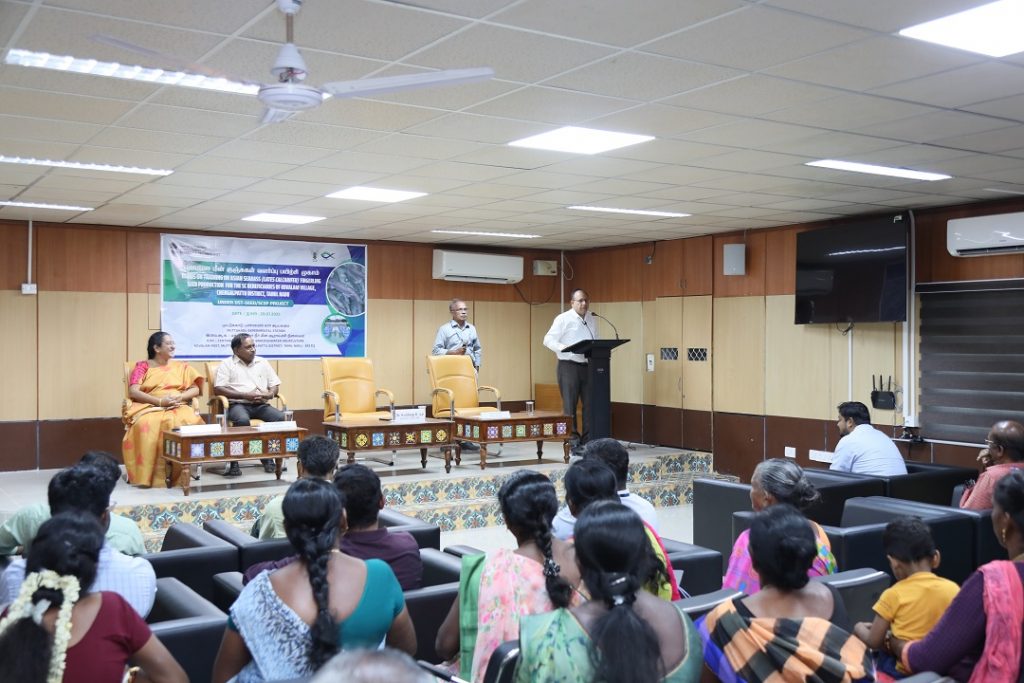On 29th July 2025, ICAR-Central Institute of Brackishwater Aquaculture (ICAR-CIBA) conducted a hands-on training programme on Asian Seabass (Lates calcarifer) fingerling seed production for Scheduled Caste (SC) beneficiaries of Kovalam village, Chengalpattu District, Tamil Nadu, under a Department of Science and Technology (DST) funded project. Held at the Muttukadu Experimental Station (MES) of CIBA, the training aimed to empower coastal rural SC communities by equipping them with practical skills and knowledge in brackishwater aquaculture, particularly seabass hatchery and nursery practices. A total of 40 beneficiaries actively participated in the training. Dr. Kuldeep K. Lal, Director of ICAR-CIBA, inaugurated the programme and, in his address, emphasized the need to harness the traditional skills of coastal communities to enhance aquaculture production and improve rural livelihoods. He encouraged the beneficiaries to actively take up seabass fingerling seed production as a community enterprise, contributing to both socio-economic upliftment and national aquaculture development. Dr. M. Kailasam, Principal Scientist, Head of the Fish Culture Division, and Principal Investigator of the DST project, highlighted the vast scope in seabass seed production, pointing out that India currently faces a significant shortfall against the national demand of 80 million seed annually. He called this initiative a timely opportunity for rural participation not only in bridging the seed gap but also help for entrepreneurship development among the beneficiaries. Dr. P. Mahalakshmi, Principal Scientist, Social Science Division, explained various CIBA-developed aquaculture technologies aimed at enhancing the livelihoods of SC/ST communities, while Dr. R. Geetha, Senior Scientist, highlighted nursery rearing as a potential income-generating activity for small-scale fish farmers. Further, Dr. R. Jayakumar, Principal Scientist and Officer-in-Charge, MES, shared a successful case study of women self-help groups in Kottaikadu who have achieved economic independence through seabass fingerling production. The trainees were also visited CIBA’s state-of-the-art seabass hatchery, where they were explained technical aspects such as broodstock management, larval rearing, and nursery operations. This practical exposure was instrumental in reinforcing their understanding of the techniques discussed during the training. Through such focused capacity-building efforts, ICAR-CIBA continues to foster skill-based aquaculture entrepreneurship among scheduled caste rural communities.
Night mode
